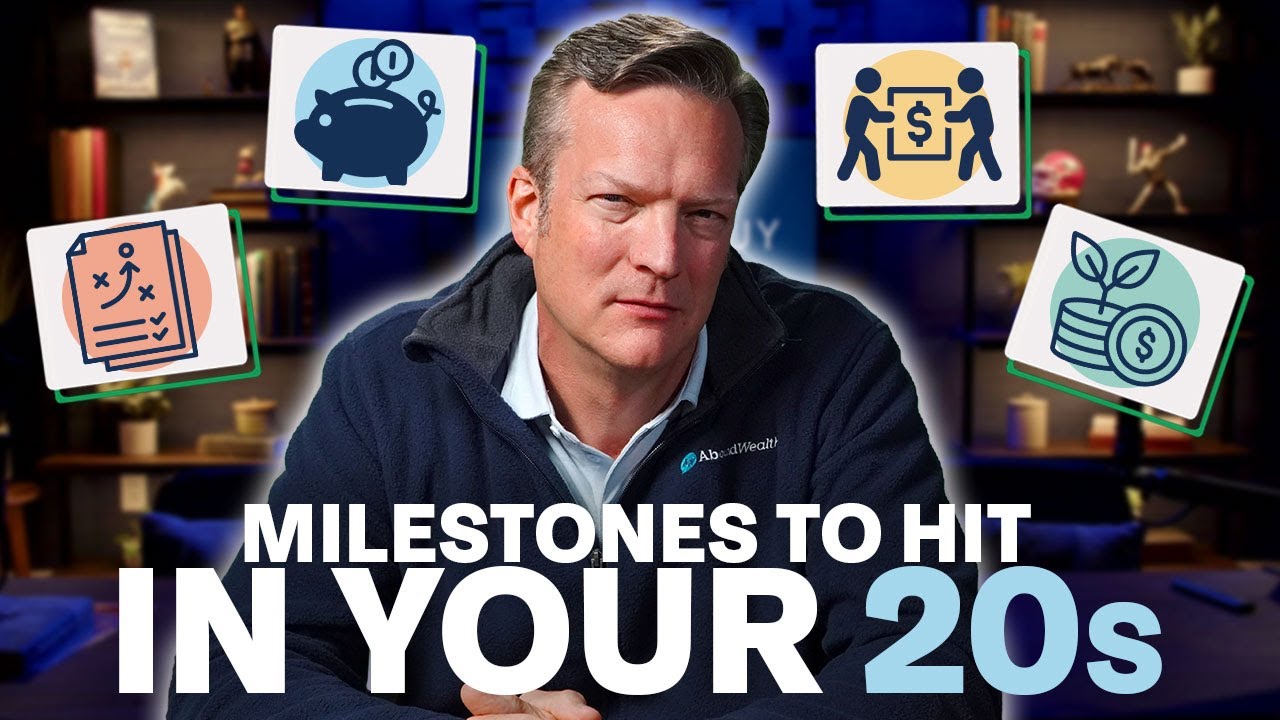Right now, you and I, both, come from very similar backgrounds, and this is something that I was taught at an early age. This is something that I learned - very odd - that the way that wealthy people become wealthy, unfortunately, is that you have to be born into it. You have to be someone who wealth is something that's passed down from generation to generation. So, if you want to be on that side of the equation, your parents need to have been on that side of the equation. Yeah, this is something I think I've shared the first 22 years of my life because that's how long it took before I graduated from the University of Georgia then took my first job in public accounting. But that's what I thought. I thought, you know, really the quickest path to wealth, the way the majority did it, was they got that silver lucky silver spoon club.
But that's not actually what the data shows. And by the way, we are going to, like I said, interlace throughout this, our own wealth survey of our clients, but we're not the only ones that have come up with this data, y'all. You've heard us share, if you were throwing horseshoes on wealth creation, there's a stat that we use consistently, and it is 80 percent of millionaires are first-generation. Look at this research. Yeah, it's pretty wild. If you look at all these different sources dating back to 1892 when they used to determine how many folks inherited wealth, 84 percent were first-generation. And then you fast forward to 1996, the number was 80 percent. And then you fast forward to a study done in 2019, it was 79. And then even studies done in 2022 found that 76 percent are self-made or first-generation. Check out our show called,
"Millionaires Share Their Secrets to Financial Success! (2022 Edition)." We break down our annual wealth survey in this episode and more!
So, this idea that wealth is something that's passed on, that's permeated, is not backed up by this because most folks with millionaire status didn't get it because they inherited money from their parents or from relatives. But this stat couldn't exist without some bad stuff going on too, and this is a stat that makes me so sad. And this is something that will be a teachable moment here. Wealth is not easily kept. Just like there's getting wealthy behaviors, there's also staying wealthy behaviors. And why do you need to know staying wealthy is because look at this. That 70 of wealth is lost by the second generation, meaning your kids, if you were the first one that's crossing into that seven-figure status, your kids, 70 of them are going to blow through, and it's going to be gone in their lifetime. By the grandkids, 90% of the wealth is gone. This is something to be very mindful of. I don't even know if we shared this, but one of the things we did is we do an annual wealth survey. We survey all of our clients and ask them some interesting questions. And we asked, okay, how many of you clients that work with us here to Abound Wealth received an inheritance of greater than a hundred thousand dollars because we didn't want people who maybe they received ten thousand or twenty thousand dollars, who received a small enough sum that was not a material part of you becoming wealthy and the number was only nine percent, yeah. So, it was not a majority of the clients, not a majority of the folks who with whom we work. So, this must not be the key. But if you are someone who sees these stats and you're thinking, man, this is troubling, this is problematic, that's okay.
We have some tips for you on how to maximize your money, especially if you are someone who has wealth or was born into wealth. So let's tackle these and act, because I know a lot of you are financial mutants building wealth, but you want to make sure. This is something I've even had conversations with my oldest daughter about. When I'm explaining to her opportunities for wealth building and other things, I say, "Look, in the long term, I want you to know that coming into wealth or at least having parents who've made good financial decisions, it is going to be your responsibility. I don't want you to be part of that 70%; I want you to be part of that successful 30%. So, I want to give you guys out there in the audience the tips so you can talk to your children and grandchildren. So you don't repeat that awful stat, but instead become the exception, which is building wealth upon wealth. This way, you can truly think in an abundance mindset, and we think that the earlier you can start, the better. Early discussions with young children about give, save, spend can be huge. My daughter just lost another tooth a week ago, and some money showed up. That's the way we do things at our house, and I said, "Alright, hey babe." She's seven years old now. I asked, "What are you going to do?" And she replied, "Daddy, I gotta do give, save, spend." I said, "Yes, you get it! You understand when money comes into your possession, there's a right and a wrong thing to do with it." She did that, and now we're going to figure out what we're going to spend the money on. If you can start those conversations early, those little habits you can teach them will stack through time to when they get to your children's age, where you can do more advanced techniques.
One of my favorite things you guys have seen me share on social media is parental matching. We have a dollar-for-dollar match policy in my household. It started off early with babysitting and other things. When my daughter would babysit, people would pay me and my wife through Venmo, and I would say, "Hey, we owe you some money. How do you want it?" She replied, "How about instead of giving me that hundred dollars or a hundred twenty dollars, we go ahead and put it into the Roth IRA that y'all set up?" That would make me so, so happy that she was actually showing the behavior that I have shared with you guys. She is in college now, but she's already in the five figures of her Roth IRA, and it all comes from because when she started working at Chick-fil-A and fast food, she continued the behavior of saving and investing. My whole thing was to prime the pump. We all know how exciting it is to watch your money grow and replace what you can do with your hands, your back, and your brain and actually replace weeks, eventually months, and years' worth of what you can do. It's great for kids to see that for your children so that they actually get skin in the game. They actually start investing, and let that money work as hard as they can. But then there's another side to that equation also because as our kids get older and as they start to recognize, "Okay, maybe mom and dad have done some things that have put us in a different place in life," one of the things I think is so important is teaching our kids about scarcity and generosity.
The fact is that just because things might be comfortable due to some decisions mom and dad made, it doesn't mean that everything is comfortable. We have to make opportunity cost decisions. So, if we want to take a trip, there's something that we can't do. If a toy breaks, it doesn't mean we can replace it, and we need to recognize that the things that we have can be used to help other folks. We can pour out into other people. If you can establish that in your kids before they fly out of the nest, I think you're going to set them up on solid financial footing to again break the wealth cycle that exists in this country. I would draw attention to creating scarcity environments in your child's life. I mean, there's a reason I grew up in a neighborhood where I still cringe when a lot of my peers, who will watch this content, are buying their 16-year-olds and 17-year-olds brand new, nice cars. I cringe because I think that there are a lot of learning opportunities by letting your child drive. Like my daughter, I made her pay half, so all she could afford when she bought half of her first car was a 15-18-year-old car. That car, I think that scarcity, not getting everything, will hopefully fight entitlement, and it will fight the understanding of the value of a dollar. You do need to create these environments. Now, look, I love taking trips with my family because I believe in blossoming memories, but I'm gonna try to create some scarcity so that my daughter gets wins personally, so she actually wants to keep stacking success for herself and has enjoyment from that, versus if you start them off at the tippity top of the hill with no scarcity, you can imagine when you get to real life on your own, it can feel like a letdown. Do not set your kids up. And that leads to the fact that you might need to understand that windfalls and giving money to your children might feel good to you, but you might actually be creating a situation of economic outpatient care that your kids cannot make it without you. They have a dependency on you that is not a recipe for success. And maybe you're someone out there who maybe your parents have done well, and you recognize that perhaps there's going to be an inheritance to come your way. Recognize that windfalls aren't always as life-changing as you might want them to be. We all think, 'Man, if I just had a million dollars, that would change things.' Well, maybe it would, but maybe that wouldn't be enough for financial independence. Maybe that would not be the thing that allows you to live lifestyles of the rich and famous. So, if you do have money come into your possession, whether it be through an inheritance or through gifting or through some sort of windfall, recognize that while right now it feels like a lot of money, time has the ability to either erode that or grow it exponentially, and you get to choose which one of those two paths that money goes."
Want to know what to do with your next dollar, you need this free download:
the Financial Order of Operations. It’s our nine tried-and-true steps that will help you secure your financial future.













